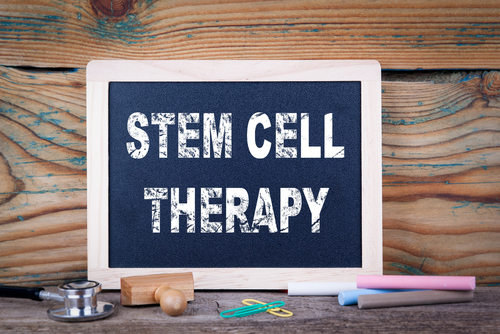Cleveland Clinic Chosen for Phase 2 Trial Testing NurOwn Stem Cell Therapy in Progressive MS Patients
Written by |

BrainStorm Cell Therapeutics announced the Cleveland Clinic is the first clinical site contracted in the United States for the Phase 2 multi-center study evaluating the company’s NurOwn mesenchymal stem cell (MSC) therapy in individuals with progressive multiple sclerosis (MS).
“We are very excited to announce The Mellen Center for MS Treatment and Research at Cleveland Clinic as the first contracted U.S. clinical site for this very important Phase 2 progressive MS study that we plan to initiate in early 2019,” Chaim Lebovits, president and CEO of BrainStorm, said in a press release.
Stem cells can divide to self-renew and create different types of cells (a process called cell differentiation). The type of cells created during differentiation depend on the stem cell type and its cell potency (ability to become other cell types).
MSCs are so-called multipotent stem cells derived from the bone marrow, that can transform into several types of cells. They form the basis of the NurOwn approach. NurOwn is designed to isolate patient-derived MSCs from the bone marrow, expand and change them into MSCs that secrete high levels of neurotrophic factors (NTFs — peptides or small proteins that support growth and survival of neurons).
These NTF-secreting MSCs (called MSC-NTF) can then be transplanted back to the same patient (autologous transplant), where they can deliver NTFs to the sites of neuronal damage. As a result, NTF-targeting to damaged neurons may slow or stabilize the disease’s progress.
The Multiple Sclerosis News Today forums are a place to connect with other patients, share tips and talk about the latest research. Join today!
“This is a crucial step forward toward rapidly enrolling a Phase 2 study to evaluate this innovative autologous cell therapy approach using our NurOwn technology platform in progressive MS patients,” Lebovits said.
Previous studies on animal models suggest that the transplanted NurOwn stem cells do not themselves replace the damaged cells, but instead deliver essential factors that allow neural stem cells to do so.
The new Phase 2 clinical trial (NCT03799718) will investigate the safety and effectiveness of repeated administration of NurOwn treatment in patients with progressive MS. The study also will examine adverse side effects upon treatment (safety measure), timed 25-foot walking speed (efficacy measure), and the number of participants with changed NTFs in the cerebrospinal fluid after transplant (efficacy measure).
“Progressive MS treatment options are limited and do not directly address unmet need,” said Ralph Kern, MD, chief operating officer and chief marketing officer of BrainStorm. “This Phase 2 clinical trial is an important part of our commitment to bring a new treatment modality and hope to MS patients.”
The study will enroll MS patients with an Expanded Disability Status Scale (EDSS) score between 3.0 and 6.5 (moderate-to-severe disability), and following the 2017 revised McDonald criteria. The trial is scheduled to start soon.
BrainStorm is currently conducting a Phase 3 clinical trial (NCT03280056) testing NurOwn treatment on patients with amyotrophic lateral sclerosis (ALS). Also, the company recently announced its plan to expand the production of NurOwn to support these upcoming trials in MS and ALS.


